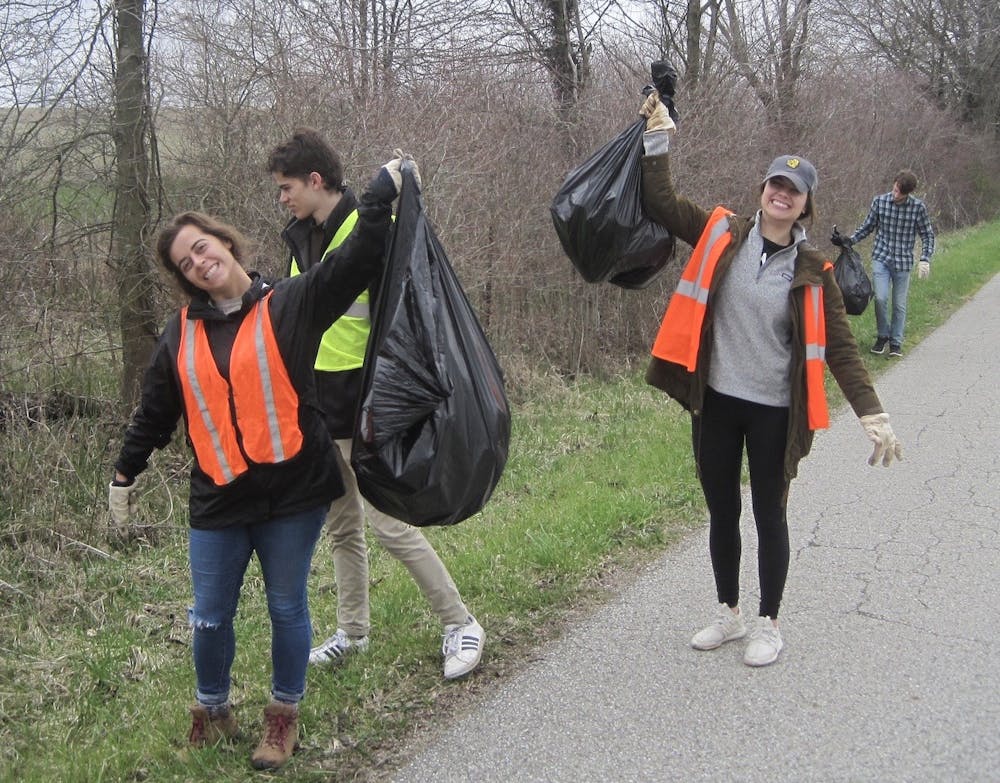This past week at Taylor, we celebrated Earth Day with opportunities for learning from video documentaries and our chapel speaker, engaging with a diet challenge, litter pick up or purchasing sustainable products. These activities align with the official purpose of Earth Day, as is stated on the website, which is to promote “action to change human behavior and create global, national and local policy changes.”
Originated in 1970, the date of April 22 was chosen between spring break and finals to maximize the greatest student participation. With student activism, it became the unofficial birth of the modern environmental movement and was quickly followed by creation of the U.S. Environmental Protection Agency and laws to protect our air, land, water, biodiversity and human health and safety. In the past five decades, college students continued to respond to the growing environmental movement, including at Taylor University.
In 1983, Taylor became one of the first Christian Colleges to offer a major in Environmental Science. In the 1990s, many more Christian Colleges introduced similar majors, with rising enrollments to meet the occupational opportunities of the surging global environmental movement. In recent years, the awareness and action on environmental issues intended by the first Earth Day continues to rise slowly among college students in general, but surprisingly lags among Taylor students.
The Higher Education Research Institute (HERI) Freshmen Survey tracks Taylor students’ interest in environmental practices. From 2014 to 2020, the number of Taylor students who felt it was not important to “become involved in programs to clean up the environment” progressively decreased from 54% to 29%. While the number of Taylor freshmen uninterested in environmental engagement is decreasing, we still lag behind such decreases among students at our peer comparison group, which decreased from 30% to 21% over the same period. Why do Taylor students remain less interested in environmental action than our broader non-Christian peer group?
At Taylor, all freshmen in the Foundation of Liberal Arts course learn about the right relationships of humans to God, self, others and creation. While our sin has broken these relationships, we are called as God’s ambassadors of reconciliation to restore the relationships for the flourishing and shalom of all things in heaven and earth. (Thank you Dr. Cramer.)
Unfortunately, many Christians emphasize the first three relationships to the neglect of creation and view our dominion as domination. While we rightly acknowledge our need for God and for intrapersonal and interpersonal reconciliation, we often see God’s creation as a mere resource to meet our own needs (and wants) rather than responsibly caring for creation in obedience to enhance its witness of the Creator and improve our witness to our neighbors.
God created the heavens and the earth and pronounced it good. If God made it and cares for it, then we, as his image bearers, should do likewise. When He created humans as His representatives on earth (Gen. 1:26-27) He commanded us to tend and keep the garden (Gen. 2:15.) While the land suffers greatly because of our sin (Isaiah 24:24–6; Jeremiah 12:4, 11; Hosea 4: 1–3, etc.) we are not excused from our original responsibility as Earth keepers. When we obediently exercise proper dominion, we honor God and enhance creation’s witness to all people of his power and majesty revealed in every common bush, in rock and stone, in order and symmetry in the world.
Second to loving God, we are to love our neighbors as ourselves (Luke 10:17,) including people we don’t know (Deuteronomy 10:19) and especially the least of these among us (Matthew 25:40.) In our unjust world marred by sin, those with the least means often experience the greatest suffering from environmental impacts. This is especially true with the global reach of climate change. As we seek environmental restoration through efforts such as international policy, humanitarian relief and sustainable development, we can advocate for those most affected by environmental impacts and improve our witness as we minister Christ’s redemptive love and truth to a world in need.
At Taylor University, we have great biblical reasons for “action to change human behavior and create global, national and local policy changes.” So, how can we develop servant leaders to “become involved in programs to clean up the environment?” It may start with small steps, but it will require “LEAPS”:
1) Learn about the issues. (Take Assistant Professor of Sustainable Development Phil Grabowski’s Environment and Society or Environmental Stewardship courses.)
2) Evaluate your attitude and behaviors. (Complete your own ecological footprint assessment.)
3) Act on your assessment. (Make appropriate environmentally-responsible changes.)
4) Persevere in your progress. (Do not grow weary in doing good.)
5) Share your engagement with others. (Join the Stewards of Creation or Sustainability Assistants at Taylor and other Christian environmental organizations after Taylor.)
Wise stewardship of the Earth gives evidence of the power of the Gospel to restore all things and is an essential part of the reconciliation of broken relationships of humans to God and each other. Earth care enhances the witness of creation to all and improves our Christian witness to our global neighbors.



